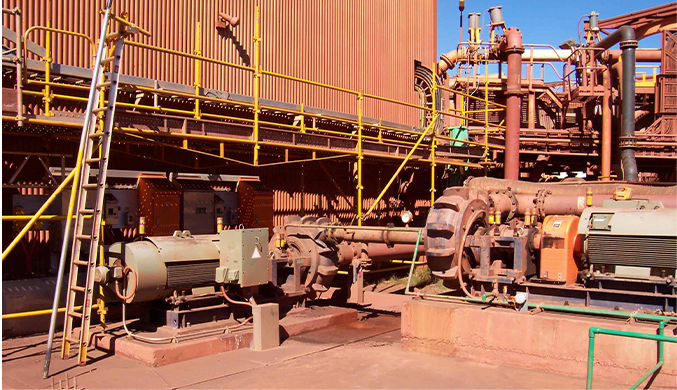Telugu
- Afrikaans
- Albanian
- Amharic
- Arabic
- Armenian
- Azerbaijani
- Basque
- Belarusian
- Bengali
- Bosnian
- Bulgarian
- Catalan
- Cebuano
- Corsican
- Croatian
- Czech
- Danish
- Dutch
- English
- Esperanto
- Estonian
- Finnish
- French
- Frisian
- Galician
- Georgian
- German
- Greek
- Gujarati
- Haitian Creole
- hausa
- hawaiian
- Hebrew
- Hindi
- Miao
- Hungarian
- Icelandic
- igbo
- Indonesian
- irish
- Italian
- Japanese
- Javanese
- Kannada
- kazakh
- Khmer
- Rwandese
- Korean
- Kurdish
- Kyrgyz
- Lao
- Latin
- Latvian
- Lithuanian
- Luxembourgish
- Macedonian
- Malgashi
- Malay
- Malayalam
- Maltese
- Maori
- Marathi
- Mongolian
- Myanmar
- Nepali
- Norwegian
- Norwegian
- Occitan
- Pashto
- Persian
- Polish
- Portuguese
- Punjabi
- Romanian
- Russian
- Samoan
- Scottish Gaelic
- Serbian
- Sesotho
- Shona
- Sindhi
- Sinhala
- Slovak
- Slovenian
- Somali
- Spanish
- Sundanese
- Swahili
- Swedish
- Tagalog
- Tajik
- Tamil
- Tatar
- Telugu
- Thai
- Turkish
- Turkmen
- Ukrainian
- Urdu
- Uighur
- Uzbek
- Vietnamese
- Welsh
- Bantu
- Yiddish
- Yoruba
- Zulu
Telephone: +86 13120555503
Email: frank@cypump.com
నవం . 10, 2024 13:22 Back to list
Efficient Solutions for Commercial Submersible Pump Applications and Technologies
Exploring the World of Commercial Submersible Pumps Functionality, Applications, and Benefits
In the ever-evolving landscape of industrial technology, commercial submersible pumps have emerged as a crucial component in numerous applications. These pumps, designed to operate while submerged in fluid, are engineered to handle a variety of challenging environments, making them indispensable in sectors such as construction, agriculture, mining, and municipal wastewater management.
Understanding Submersible Pumps
A submersible pump is a type of pump that is submerged in the fluid it is pumping. Unlike standard pumps that are mounted above the liquid level, submersible pumps operate underwater, minimizing the need for extra equipment such as suction pipes and reducing the risk of cavitation. They typically consist of a sealed motor and a pump body, both of which are designed to withstand the pressures and corrosive environments common in submerged conditions.
Key Features and Functionality
Commercial submersible pumps are engineered for efficiency, durability, and versatility. Some of their defining features include
1. Sealed Motor Design The motor is hermetically sealed to prevent water from leaking into sensitive electrical components, ensuring reliability in challenging conditions.
2. High Efficiency Designed to move large volumes of fluid quickly, these pumps are capable of handling solid particles, making them ideal for harsh environments like construction sites or wastewater facilities.
3. Versatile Applications Submersible pumps can be used for various applications, including dewatering excavations, draining flooded areas, and managing sewage and wastewater systems.
4. Variable Horsepower Ratings Available in a range of sizes, from small pumps suitable for residential applications to large, heavy-duty models for industrial use, there is a submersible pump suitable for nearly every requirement.
Applications of Commercial Submersible Pumps
The applications for commercial submersible pumps are diverse and widespread. Here are a few key sectors utilizing these pumps
commercial submersible pump

1. Construction Submersible pumps are often used for site dewatering, helping to keep excavations dry and safe during construction projects. Their ability to handle sediment and debris is crucial in maintaining a clear workspace.
2. Agriculture In agriculture, these pumps help in irrigation by transporting water from reservoirs or wells to fields. Their efficiency ensures that crops receive adequate hydration even in low-water settings.
3. Wastewater Treatment Submersible pumps play a critical role in sewage treatment processes by transferring wastewater and facilitating proper treatment. Their ability to handle solids makes them ideal for this purpose.
4. Mining The mining industry often relies on submersible pumps for dewatering operations in mines, where groundwater infiltration can be a significant concern.
Benefits of Using Submersible Pumps
The advantages of using commercial submersible pumps are substantial
- Energy Efficiency Their ability to operate underwater reduces energy consumption, making them a cost-effective solution for many industrial applications.
- Reduced Noise Pollution Since the pump operates below the surface, it produces less noise compared to above-ground pumps, making them preferable in residential or sensitive environments.
- Greater Longevity The robust design and materials used in submersible pumps translate to a longer service life, minimizing downtime and maintenance costs.
Conclusion
In conclusion, commercial submersible pumps are integral to various sectors, providing reliable solutions to fluid management challenges. Their efficiency, versatility, and durability make them an excellent choice for industries that require the movement of water or other liquids in submerged environments. As technology continues to advance, we can expect further innovations in submersible pump designs, solidifying their position as essential tools in modern industrial practices.
-
Reliable Non-Clog Sewage Pumps with GPT-4-Turbo Tech
NewsAug.04,2025
-
High-Performance Air Pumps for Sand & Gravel | Efficient Transport
NewsAug.03,2025
-
ISG Series Vertical Pipeline Pump - Chi Yuan Pumps Co., LTD.|Energy Efficiency, Corrosion Resistance
NewsAug.03,2025
-
ISG Series Pipeline Pump - Chi Yuan Pumps | Energy Efficiency&Compact Design
NewsAug.03,2025
-
ISG Series Vertical Pipeline Pump - Chi Yuan Pumps Co., LTD.|High Efficiency, Low Noise, Durable
NewsAug.02,2025
-
ISG Series Vertical Pipeline Pump - Chi Yuan Pumps | High Efficiency, Low Noise
NewsAug.02,2025










